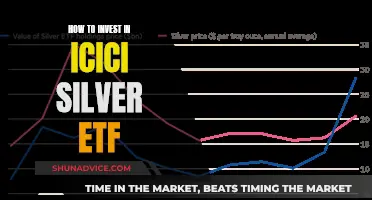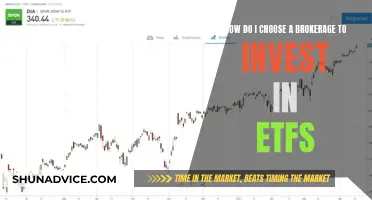
JUUL Labs, the company behind the popular e-cigarette brand JUUL, is a private company and its shares are not publicly traded. This means that JUUL stock is not available on major stock exchanges like the NYSE or NASDAQ, and it does not have an assigned stock symbol. While there is speculation that JUUL may pursue a public offering in the future, currently, there is no news on whether the company will release an IPO. As a result, investment options in JUUL are limited. Accredited investors, who meet specific financial criteria, can purchase JUUL stock through private markets and specialised platforms. On the other hand, retail investors seeking exposure to the vaping market may consider alternative investment options, such as investing in companies within the tobacco and vaping sectors or exchange-traded funds (ETFs) focused on these industries.
| Characteristics | Values |
|---|---|
| Publicly traded | No |
| Stock symbol | N/A |
| Investment options | Accredited investors can purchase shares through platforms such as EquityZen, Hiive, and Forge. Retail investors can consider alternative companies or sector-focused ETFs. |
| Company status | Private company |
| Market share | 25% of the vaping market as of 2023 |
| Valuation | Peak valuation of $38 billion |
What You'll Learn
- JUUL is a private company, so its shares are not publicly traded
- JUUL's shares are available to accredited investors through platforms like Hiive, EquityZen, and Forge
- Retail investors can gain exposure to the vaping market by investing in companies like British American Tobacco and Imperial Brands
- ETFs focused on the tobacco and vaping sectors offer diversified investment options for retail investors
- JUUL's future growth depends on navigating regulatory challenges, preventing underage usage, and maintaining distributor partnerships

JUUL is a private company, so its shares are not publicly traded
The private nature of the company limits investment opportunities for typical retail investors. Retail investors cannot buy JUUL stock directly and need to explore alternative methods, such as investing in competitor companies or sector-focused ETFs. However, accredited investors, who meet specific financial criteria, can access JUUL stock through specific platforms designed for private markets, such as EquityZen, Hiive, and Forge. These platforms allow accredited investors to buy and sell JUUL stock from existing shareholders.
While JUUL's private status poses challenges for direct investment, it also allows the company to operate with reduced influence from public market fluctuations, potentially leading to more stable growth and strategic development. Additionally, JUUL's private status means that its stock price is not publicly available, and its market activity is currently low.
Speculation exists about JUUL pursuing a public offering in the future, which could increase its market valuation and attract a broader range of investors. Until such a decision is made, investors interested in JUUL need to explore alternative investment options or wait for a potential future IPO.
Inverse ETFs: A Guide to Shorting the Market
You may want to see also

JUUL's shares are available to accredited investors through platforms like Hiive, EquityZen, and Forge
JUUL is a privately-held company, and its shares are not publicly traded on the NYSE or NASDAQ. This means that JUUL shares are not available for purchase through conventional brokerage accounts. However, accredited investors can buy JUUL shares through specific platforms. These platforms provide a marketplace for buying and selling shares of private companies, allowing investors to capitalise on the company's continued innovation and market presence.
One such platform is EquityZen, which allows accredited investors to buy and sell JUUL stock from existing shareholders. EquityZen brings together investors and shareholders, providing liquidity to early shareholders and private market access to accredited investors. It offers low investment minimums through its funds and has completed over 43,000 private placements across 450+ companies.
Another platform that offers opportunities for accredited investors to invest in JUUL is Hiive. Hiive provides a transparent marketplace for investors to understand the market for their shares. It offers fair and transparent fees, and investors can place their listings anonymously. Hiive also provides free access to historical trading data on hundreds of top pre-IPO companies, including JUUL.
Finally, Forge is a platform that enables accredited investors to buy pre-IPO shares in private companies like JUUL. Forge has a network of over 125,000 accredited investors and institutions, providing a vast pool of potential buyers and sellers. Their Private Market Specialists can guide investors through the process of buying or selling private company shares.
In summary, while JUUL shares are not publicly traded, they are available to accredited investors through platforms like Hiive, EquityZen, and Forge. These platforms provide opportunities for investors to capitalise on JUUL's market presence and continued innovation.
ETFs: A Guide to Getting Started with Investing
You may want to see also

Retail investors can gain exposure to the vaping market by investing in companies like British American Tobacco and Imperial Brands
Retail investors interested in gaining exposure to the vaping market may find it challenging to directly invest in JUUL Labs, as it is a private company and its shares are not publicly traded. However, there are alternative investment avenues available, such as investing in publicly traded companies that also manufacture vaping products. Two prominent examples in this sector are British American Tobacco and Imperial Brands.
British American Tobacco (BAT) is a transnational tobacco company that has been a significant player in the e-cigarette market since 2013. The company's flagship e-cigarette brand, Vuse, has gained prominence globally and held the highest market share in value in key markets like the USA, Canada, France, the UK, and Germany. BAT has also expanded its vaping business through acquisitions, such as purchasing the Polish e-cigarette company CHIC and the South African e-cigarette company Twisp. In 2021, BAT reported that the value of its global e-cigarette sales increased by 26% in 2018 and 58% in the first half of 2019. The company continues to innovate and consolidate its vaping brands, focusing on Vuse and glo (its heated tobacco product).
Imperial Brands PLC, the maker of Blu e-cigarettes, is another established player in the vaping market. The company has recognised the importance of next-generation products (NGP) and is committed to meeting consumer needs in this category. Imperial Brands anticipates growth across all NGP categories and expects vapour products to have a significant presence in the nicotine market by 2025. The company's product portfolio spans vapour, heated tobacco, and oral nicotine offerings. Its vapour products include closed systems, such as the pod format, and open systems that allow users to refill the e-liquid. Imperial Brands' vapour brand, blu, has established positions in the USA, the UK, and France.
By investing in companies like British American Tobacco and Imperial Brands, retail investors can gain indirect exposure to the vaping industry. These companies provide an opportunity to benefit from the growth of the vaping market while also diversifying their investment portfolios. It is important to note that investing in the vaping market carries its own set of risks, including regulatory challenges and health concerns associated with vaping products.
A Beginner's Guide to Investing in Amazon ETFs
You may want to see also

ETFs focused on the tobacco and vaping sectors offer diversified investment options for retail investors
Exchange-traded funds (ETFs) that focus on the tobacco and vaping sectors offer diversified investment options for retail investors. While direct investment in JUUL Labs may not be possible due to its private status, ETFs provide an avenue to gain exposure to the vaping market and related industries. These ETFs typically include a range of stocks from companies involved in the production and sale of vaping products, as well as tobacco-related businesses.
ETFs in this sector offer several benefits to retail investors. Firstly, they provide diversification by spreading the investment across multiple companies, reducing the risk associated with investing in a single stock. Secondly, ETFs offer a more accessible entry point for investors who may not meet the requirements to become accredited investors in private companies. Additionally, the vaping and tobacco industries have experienced significant growth, driven by the shift from traditional cigarettes to alternative nicotine products. This trend is expected to continue, with the global e-cigarette market projected to reach over $50 billion by 2025 and $182 billion by the end of 2030.
When considering ETFs in the tobacco and vaping sectors, it is essential to evaluate the Tobacco Involvement metric. This metric indicates the percentage of a portfolio's market value exposed to companies with ties to tobacco products, including distributors, licensors, retailers, suppliers, or owners. A higher Tobacco Involvement percentage may signify a more concentrated investment in this sector. However, it is worth noting that tobacco use is a significant risk factor for various chronic diseases, including cancer, lung disease, and cardiovascular disease.
Some examples of ETFs in the tobacco and vaping sectors include the Consumer Staples Select Sector SPDR Fund (XLP A) and the iShares Global Consumer Staples ETF (KXI A-). These ETFs provide exposure to a range of consumer staples companies, including those involved in the tobacco and vaping industries. Additionally, investors concerned about the health impact of vaping may consider healthcare-focused ETFs, such as the Fidelity MSCI Health Care ETF (FHLC A) or the Vanguard Health Care ETF (VHT A+).
While investing in the tobacco and vaping sectors through ETFs offers diversification and accessibility, it is important to carefully consider the risks associated with these industries. Regulatory scrutiny, health concerns, and changing consumer preferences have significantly impacted companies in these sectors. Therefore, due diligence and a thorough understanding of the market dynamics are crucial before making any investment decisions.
BRICS ETF: A Smart Investment Strategy for Global Diversification
You may want to see also

JUUL's future growth depends on navigating regulatory challenges, preventing underage usage, and maintaining distributor partnerships
JUUL's future growth depends on successfully navigating regulatory challenges, preventing underage usage, and maintaining distributor partnerships. The company has faced intense regulatory scrutiny and legal challenges due to health concerns associated with its high-nicotine products. Preventing underage usage is crucial, as JUUL's popularity among youth has contributed to a rise in nicotine addiction among adolescents. To maintain distributor partnerships, JUUL must address these health and regulatory concerns while continuing to innovate and expand.
JUUL's regulatory challenges include scrutiny from the FDA and various state authorities. In 2022, the FDA imposed a ban on JUUL e-cigarettes due to health concerns, and the company has faced multiple lawsuits accusing it of marketing to minors and inadequate health warnings. To ensure future growth, JUUL must adapt its business practices to comply with regulatory changes and maintain consumer trust.
Preventing underage usage is a critical aspect of JUUL's future success. The company's sleek, discreet design and initial offering of sweet and fruity flavours have contributed to its popularity among teenagers. JUUL must implement stricter measures to prevent minors from accessing its devices, including improved age verification processes, to reduce the appeal of its products to younger audiences.
Maintaining distributor partnerships is also essential for JUUL's growth. The company has established partnerships with distributors like Altria, leveraging their resources and distribution networks to enhance its market presence. These partnerships provide JUUL with the support needed to maintain its market position and drive growth.
Overall, JUUL's future growth depends on its ability to address regulatory challenges, prevent underage usage, and sustain distributor partnerships. By navigating these challenges and focusing on innovation, JUUL can continue to be a leading player in the vaping industry, offering a less harmful alternative to combustible cigarettes.
Invest in Guyana's Future: ETFs and Opportunities
You may want to see also
Frequently asked questions
No, there is no ETF investing in Juul. Juul is a private company and shares are not publicly traded. Retail investors interested in the vaping sector can consider investing in exchange-traded funds (ETFs) that focus on the tobacco and vaping sectors.
Accredited investors can purchase shares in Juul through platforms like EquityZen, Hiive, and Forge. Retail investors can consider investing in companies that manufacture vaping products, such as British American Tobacco and Imperial Brands.
There is currently no news on whether Juul will release an IPO. The company has explored multiple options, including selling to "Big Tobacco" companies, but has not mentioned listing shares on the public market.
As a private company in the highly regulated vaping industry, Juul faces challenges related to regulatory scrutiny, health concerns, and underage usage. These factors have impacted the company's market strategies and valuation.







